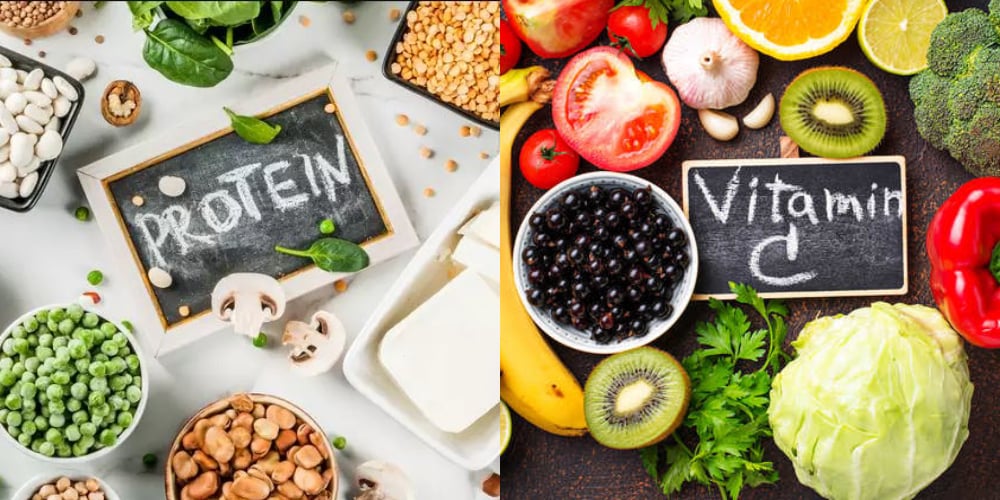
You may have heard how important protein is for our body for they are the ones responsible for the growth and development among others.
We are aware of protein and vitamins as well and their importance. And that’s why many people keep popping multi-vitamins.
However, one should note that eating a balanced diet which includes lean meats, fatty fish, nuts, seeds, fruits, vegetables, and low-fat dairy products is of utmost importance.
And covering major nutrients such as carbohydrates, fats, proteins, vitamins, minerals, and water is very vital.
One should note that a deficiency of any of the nutrients can lead to disorders and medical conditions. That’s why one should have a balanced diet which includes almost all nutrients to prevent any diseases.
Also, you can consult the doctor or nutritionist who can help you with diet and supplement chart that is ideal for you. Today we are just talking about protein and vitamins.
While proteins belong to macronutrients, while vitamins are classified as micronutrients. Let’s dig deeper.
Protein VS Vitamins: Check out the difference
Proteins
Proteins, as mentioned falls under macronutrients as our body needs large amounts of them to function properly. It helps our body to build, help to maintain fluid balance and keep your immune system functioning ideal.
It also aids in the development, structure, and function of cells, tissues, antibodies, hormones and enzymes among others. Ideally, one should take 0.4 grams of protein for every pound of body weight.
Some of the best sources of protein are dairy products, meat, fish, legumes, nuts, seeds, and whole grains.
Vitamins
Our body needs vitamins in small amounts for proper growth and to maintain overall health. There are a total of 13 vitamins.
They are divided into two categories based on how your body absorbs them. Water-soluble vitamins are C and the B vitamins niacin, thiamine, riboflavin, vitamin B-6, vitamin B-12, folate, biotin, and pantothenic acid.
These vitamins get absorbed with water and enter the bloodstream directly. Then there are fat-soluble vitamins. Vitamin A, vitamin D, vitamin E and vitamin K are the fat-soluble ones they need dietary fat to be absorbed properly.
As per The Centers For Disease Control and Prevention, one should consume one and a half to two and a half cups of fruit and two and a half to 4 cups of vegetables daily, as per age.
Bottom line
We need both the nutrients and other macro and micronutrients as well. Follow the daily recommended intake of each nutrient and their best sources.
Read More News On
- protein diet
- Protein food
- Protein food nutrients
- protein vs vitamin
- protein vs vitamin diet
- Protein vs Vitamin difference
- protein vs vitamin important
- proteins and vitamins food
- Proteins health benefits
- types of proteins
- types of vitamins
- Vitamin food nutrients
- Vitamins health benefits
- Vitamins intake
Catch all the Health News, Breaking News Event and Latest News Updates on The BOL News
Download The BOL News App to get the Daily News Update & Follow us on Google News.



